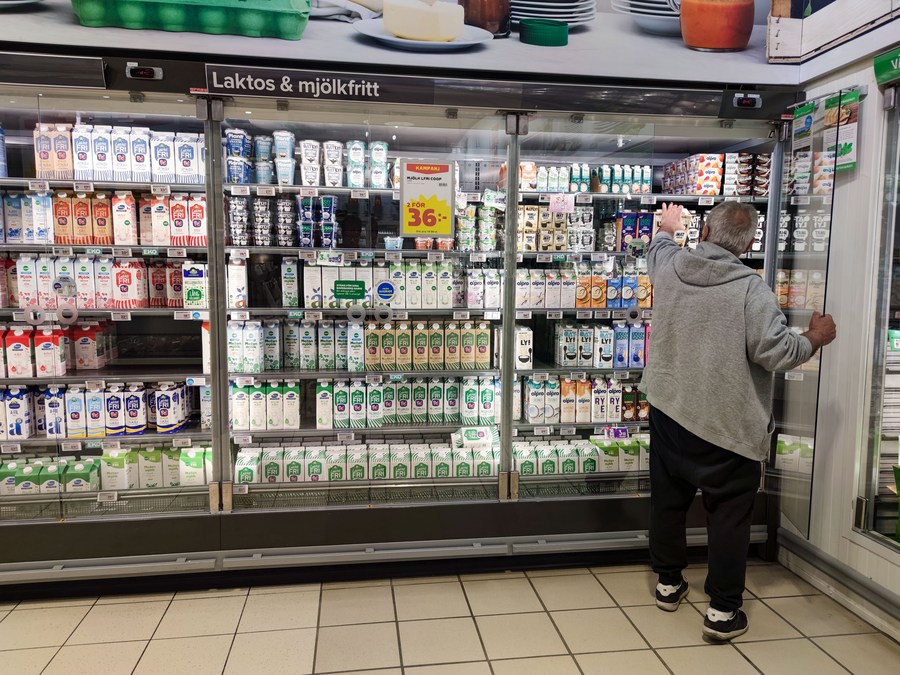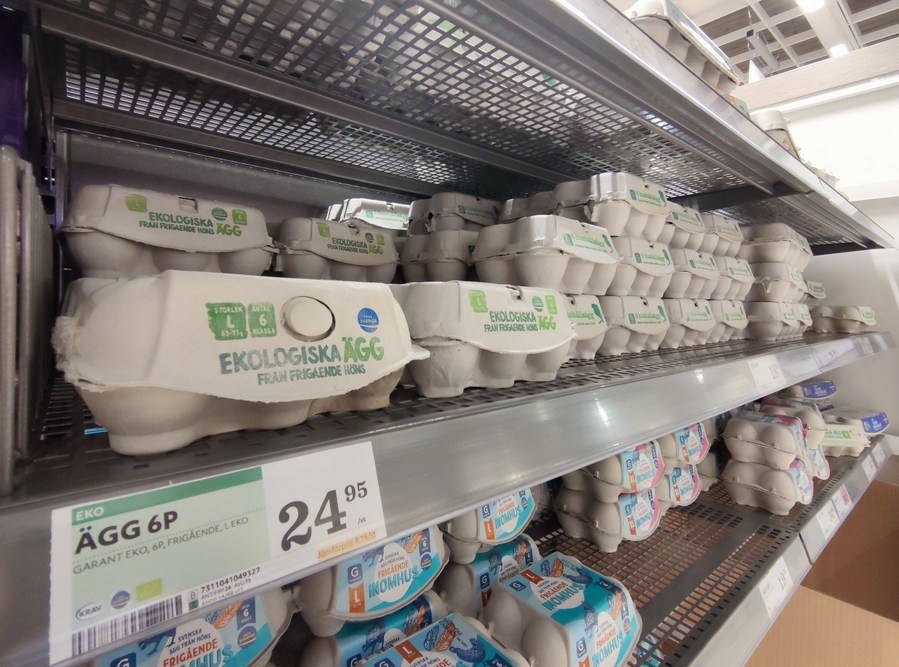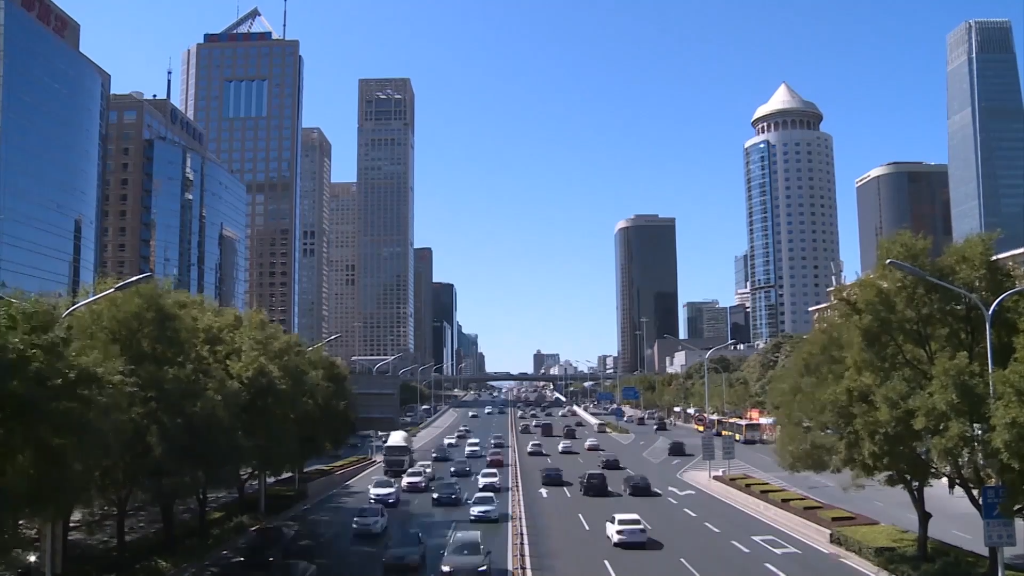
Customers are seen at a coffee shop in Stockholm, Sweden, on July 14, 2022. (Xinhua/Fu Yiming)
The data in June showed the prices of food, electricity and fuel hiked by 11.2 percent, 39.8 percent and 54.2 percent respectively year-on-year. Basic consumer goods such as meat, milk, cheese, eggs, coffee and bread contributed the most to inflation, with the price of coffee alone jumping nearly 50 percent year-on-year.
STOCKHOLM, July 28 (Xinhua) -- Already at its 30-year high, inflation keeps breaking new records in Sweden as prices of food, electricity and fuels skyrocket in recent months, due partly to the conflict in Ukraine and sanctions against Russia.
Data newly published by Statistics Sweden showed the country's 12-month inflation rate hit 8.5 percent in June, the highest since December 1991. This figure, above market expectations, followed increments of statistics: 6.1 percent in March, 6.4 percent in April and 7.2 percent in May.
"Prices on food, electricity, and fuel rose and affected the inflation rate the most," Sofie Ohman, a price statistician at Statistics Sweden, said of the June inflation rate in a press release.
The data in June showed the prices of food, electricity and fuel hiked by 11.2 percent, 39.8 percent and 54.2 percent respectively year-on-year. Basic consumer goods such as meat, milk, cheese, eggs, coffee and bread contributed the most to inflation, with the price of coffee alone jumping nearly 50 percent year-on-year.

A customer shops at a supermarket in Stockholm, Sweden, on June 14, 2022. (Photo by Wei Xuechao/Xinhua)
It is more expensive for the Swedes to own or rent a home, as the prices for real estates, rents and electricity keep soaring. Commuting expenses are also climbing, driven by the soaring fuel and vehicle prices.
Likewise, prices for furniture, household equipment, catering and hospitality services, culture and entertainment, and personal care have all increased.
Kristina Lagerstrom, economics commentator with a Swedish TV, said the inflation in June went "beyond market expectations," the impacts of the record-high inflation rate in recent months were serious and people can feel the impact of high prices.
Many Swedish households are now forced to reconsider their priorities when they can no longer afford everything they need, said another economist on condition of anonymity.
The Swedish Tenants' Union fears that landlords will demand rent increases "unseen in decades" ahead of the next round of negotiations, Martin Hofverberg, chief economist of the union, told Swedish Television.
He said the union cannot agree to compensate for all the cost increases requested by landlords, as tenants' costs have already risen and further drastic rent increases would be unacceptable. "But we must prepare for the worst."

A man fuels a vehicle at a gas station in Stockholm, Sweden, on June 14, 2022. (Photo by Wei Xuechao/Xinhua)
In order to curb the high levels of inflation, Swedish Central Bank has since April ended the negative and zero interest rate policy that was in place for more than seven years, raising the policy interest rate (previously called repo rate) from zero to 0.25 percent, and said it would be gradually raised to a level just below 2 percent within the next three years.
However, the record-breaking inflation rates soon forced the central bank to intervene again. From July 6, the policy rate was raised to 0.75 percent, the largest interest rate hike in Sweden this year. It dramatically shortened the time frame to raise its policy rate to around 2 percent to early next year.
The central bank said hikes in interest rates are necessary to tackle the negative impact of inflation on the national economy, as uncertainties in global supply chains, geopolitics and further price hikes will continue to push up inflation.
Only a week before the 50 basis points hike, the Swedish National Institute of Economic Research (NIER) warned that the country was facing economic decline due to high inflation.
It said economic growth will be around 1.9 percent this year and 1.2 percent in 2023, a drastic decline from the 3.3 percent and 2.1 percent it forecast in March, when the agency believed an economic boom, albeit moderate, was to start towards the end of the year.

Photo taken on April 13, 2022 shows eggs on the shelf at a supermarket in Stockholm, Sweden. (Photo by Wei Xuechao/Xinhua)
NIER said the slowdown is mainly due to the worsening economic situation for Swedish households, the result of "a perfect storm" that started with an expansive monetary policy to dampen the negative economic effects of the COVID-19 pandemic, followed by supply and delivery problems as production took off again after the lockdown, and further exacerbated by the Russia-Ukraine conflict.
Swedish consumers are also pessimistic about their economic future, NIER's report said. Last year, confidence among Swedish households stood at above 110 (baseline 100), whereas this year, confidence shrank to 70, an all-time low.
Johan Lof, a senior economist with Handelsbanken, a Swedish bank, said high inflation has a major impact on Swedes' lives. Consumers seek promotional prices, mortgages are more expensive, and economists see mounting pressure on the central bank to act again.
Lof said it is increasingly likely that the central bank will raise its policy interest rate by another 75 basis points in September.
Yet NIER has warned that the central bank's tightening of monetary policy will face a "difficult balance" between curbing inflation and avoiding an excessive slowdown. ■












